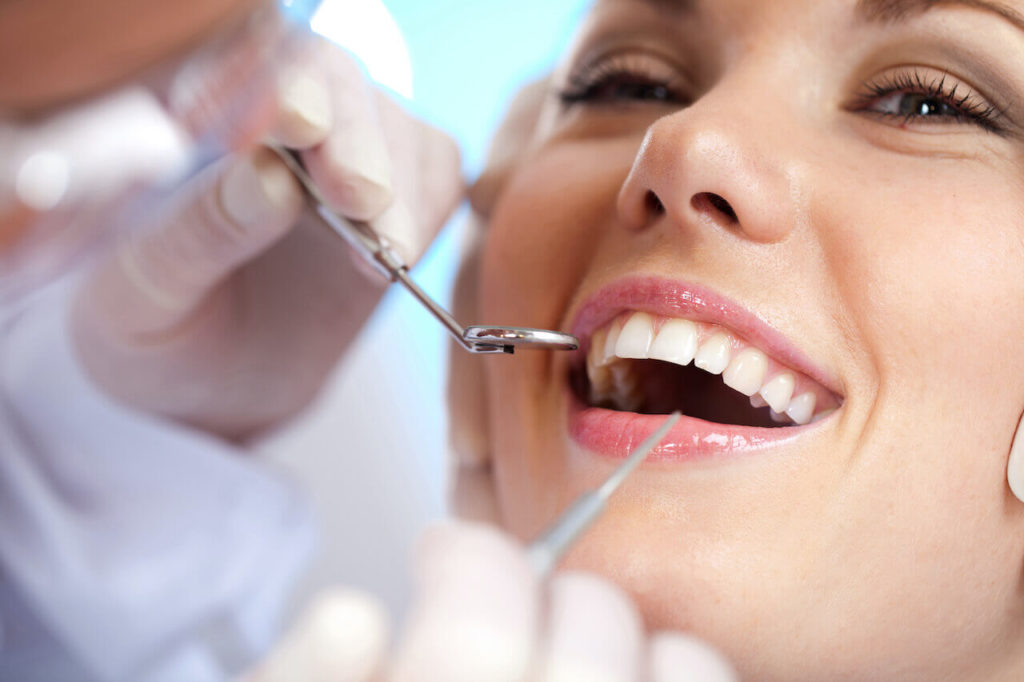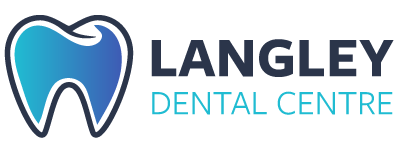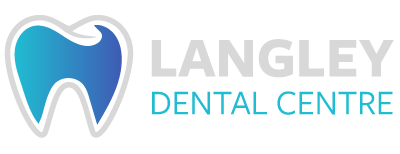
Langley Dental Centre performs various oral exams as part of our preventative dentistry routine. With exams, we can evaluate the condition of your teeth and gums to detect any subtle changes or potential problems. X-rays are also used for proper diagnosis, allowing us to determine if any problems exist that are not immediate to us during a regular oral exam.
Digital X-Rays
At our office in Langley, Langley Dental Centre use digital x-rays. If you have not undergone dental X-rays for some time, your dentist will obtain images of your teeth and jaws at your first appointment and yearly thereafter. Dental X-rays can help detect cavities, tooth eruption issues or bone loss in the jaws.
These types of x-rays are not only more environmentally-friendly than traditional methods, but let us produce instant images while keeping your exposure to radiation to a minimum. You can also get involved in co-diagnosis and develop a better understanding of your oral health treatments.
For more information, visit the Canadian Dental Association.
Reasons for Oral Exams
In addition to performing diligent oral care at home, you should see your dentist every six months for a routine check-up. Likewise, studies have proven a link between gum disease and health conditions such as diabetes, dementia, and cardiovascular disease, so it pays to undergo routine cleaning to spot gum disease in the early stages when it is reversible so that you can reduce your risk of other health problems.
Medical History
At your first office visit for a comprehensive oral exam, your dentist will review your medical history with you. Knowing if you’ve been diagnosed with certain medical conditions can help your dentist determine if you’re susceptible to oral health problems or may experience a reaction to a particular dental treatment or anesthetic. The medications you take can also make you more vulnerable to developing cavities or periodontal disease. At each six-month checkup, be sure to let your dentist know if you have been diagnosed with a new health condition or changed your medication regimen to ensure that you continue to receive dental care tailored to your unique needs. Also, do not be afraid to tell your dentist if you have experienced anxiety over dental visits in the past so that he or she can present you with different options for making you comfortable during exams and treatments.
Visual Examination
A visual inspection can help your dentist spot most oral health problems, including the following:
Cavities: Using a tool to gently probe all tooth surfaces, your dentist can detect soft spots that may indicate decay. If caught early enough, which is often the case with patients who keep their regular checkup appointments, tooth decay can sometimes be reversed with a professional fluoride treatment.
Periodontal Disease: Like cavities, periodontal disease is detected by using a dental probe. Your dentist will use this instrument to measure the spaces between your gums and teeth to determine if gum disease is present. If gum disease is spotted at its first stage, which is called gingivitis, it can usually be reversed with professional teeth cleaning and an impeccable at-home oral hygiene routine.
Oral Cancer: Affecting the lips, throat, head, neck and soft tissues inside the mouth, oral cancer has a high cure rate if caught early. Your dentist will visually inspect these areas for unusual sores, lumps or rough patches and palpate them to determine if swelling or tenderness is present.
Jaw and Bite Issues: A misaligned bite can cause a host of problems with your teeth and jaws, including pain the jaw joints and teeth grinding. Stress can also cause you to grind your teeth and lead to jaw problems such as TMJ disorder. At your first comprehensive oral exam, your dentist will evaluate the way your teeth meet, check your jaws for signs of stress and inspect your teeth for damage caused by grinding to determine if further treatment is necessary.
Teeth Cleaning
Professional teeth cleaning is recommended every six months, so you may want to combine your checkup and cleaning appointments for the sake of convenience. Your hygienist will begin your cleaning by removing tartar buildup with an instrument called a scaler to help prevent gum disease. After scaling, your hygienist will polish your teeth with a paste that contains mild abrasives to remove plaque and surface stains, leaving your teeth smooth and less likely to collect oral bacteria. If indicated, you may also receive a fluoride treatment that helps remineralize your tooth enamel and reduce your risk of developing cavities.
Dental Exam References
Mayo Clinic: Dental Exam Basics
Mayo Clinic: Dental Exam – What to Expect
Dental Hygiene Oral Exam – A Complete Consumer Guide

